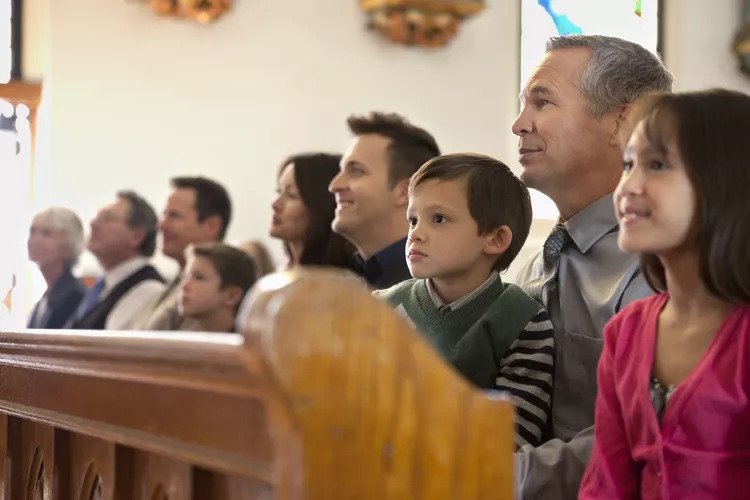Lifehacks
Why Do People Believe In Religion?
Religion has been a fundamental part of human culture for thousands of years, and despite the advances in science and technology, it remains a crucial aspect of human life. The majority of people in the world today follow one religion or another, and many attribute their faith to a higher power as a source of comfort and guidance. But why do people believe in religion? This article will explore why religion has remained an essential part of human life.
Why Do People Believe In Religion
For a Sense of Purpose: One of the primary reasons people believe in religion is the need for a sense of purpose and meaning in life. Religion provides a framework for understanding the world and our place in it. It helps us answer fundamental questions about why we are here, our purpose, and what happens after we die. By answering these questions, religion gives us a sense of purpose and meaning that we might not otherwise have.
1. Need for Connection:
Another reason people believe in religion is the need for community and social connection. Religious institutions often serve as a gathering place for people who share similar beliefs and values. This sense of community can provide support and comfort, especially during difficult times. In addition, religious institutions often offer opportunities for people to engage in charitable work and other activities that benefit the broader community. By doing so, religion fosters a sense of social responsibility and encourages people to give back to their communities.
2. For Comfort and Hope:
People believe in religion because they need comfort and hope. Life can be unpredictable, and we all face challenges and hardships at some point. Religion provides us with a source of comfort and hope during these difficult times. It can offer us solace in times of grief, guidance in times of uncertainty, and help us find meaning in our struggles.
3. Moral Guidance:
Another reason people believe in religion is the need for moral guidance. Religion often provides a set of moral principles and guidelines that help people navigate the complexities of life. These principles can help us make difficult decisions, treat others with compassion and respect, and live according to our values. In addition, religious institutions often offer opportunities for personal growth and spiritual development, which can help us become better people.
4. The need for transcendence:
Many people seek a deeper connection with something greater than themselves, whether it be a higher power or a sense of interconnectedness with the universe. Religion can offer us a way to connect with this transcendent aspect of life and help us find meaning and purpose beyond ourselves.
5. Emotional Comfort:
Religion can offer emotional comfort and peace during stress, grief, or uncertainty. The belief in a higher power and the promise of an afterlife can provide comfort and hope, especially during difficult times.
6. Rituals and Traditions:
Religion provides a sense of continuity through rituals and traditions passed down through generations. These rituals and traditions can help individuals connect with their cultural heritage and provide comfort and familiarity.
7. Explaining the Unexplainable:
Religion explains phenomena that are difficult to understand or explain. For example, the concept of divine intervention can help individuals make sense of seemingly random events in their lives.
8. Fear of Death:

Religion can offer comfort and hope in the face of death. The belief in an afterlife and the promise of eternal life can provide peace and comfort to individuals facing their mortality.
9. Desire for Control:
Religion can offer a sense of control in a chaotic world. It provides individuals with rules and guidelines to follow, giving them a sense of control over their lives.
10. Cultural Identity:
Religion is often tied to cultural identity; individuals may identify with a particular religion to connect with their cultural heritage. It can provide pride and belong to individuals who identify with their religion’s cultural roots.
11. Experience of the Divine:
For some individuals, religion offers a way to experience the divine or transcendental. They may feel connected to a higher power or spiritual realm through prayer, meditation, or religious practices. This experience can be transformative and life-changing.
Conclusion
In conclusion, there are many reasons why people believe in religion. Whether it is the need for a sense of purpose and meaning in life, social connection and community, comfort, hope during difficult times, moral guidance, or a desire for transcendence, religion provides a framework for understanding the world and our place. While there may be many different religions and belief systems, the fundamental human needs they address are universal. Religion remains integral to human life and will likely continue for many years.
ALSO, READ HOW TO STOP BEING A PEOPLE PLEASER
Originally posted 2023-10-02 21:48:11.










